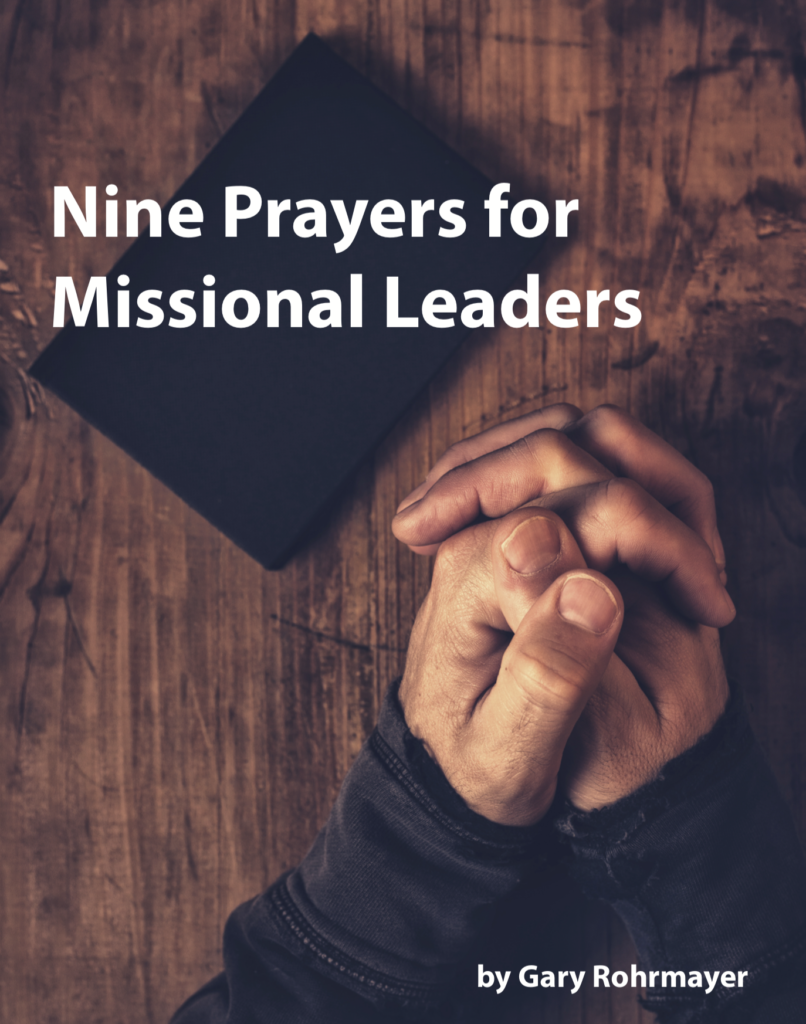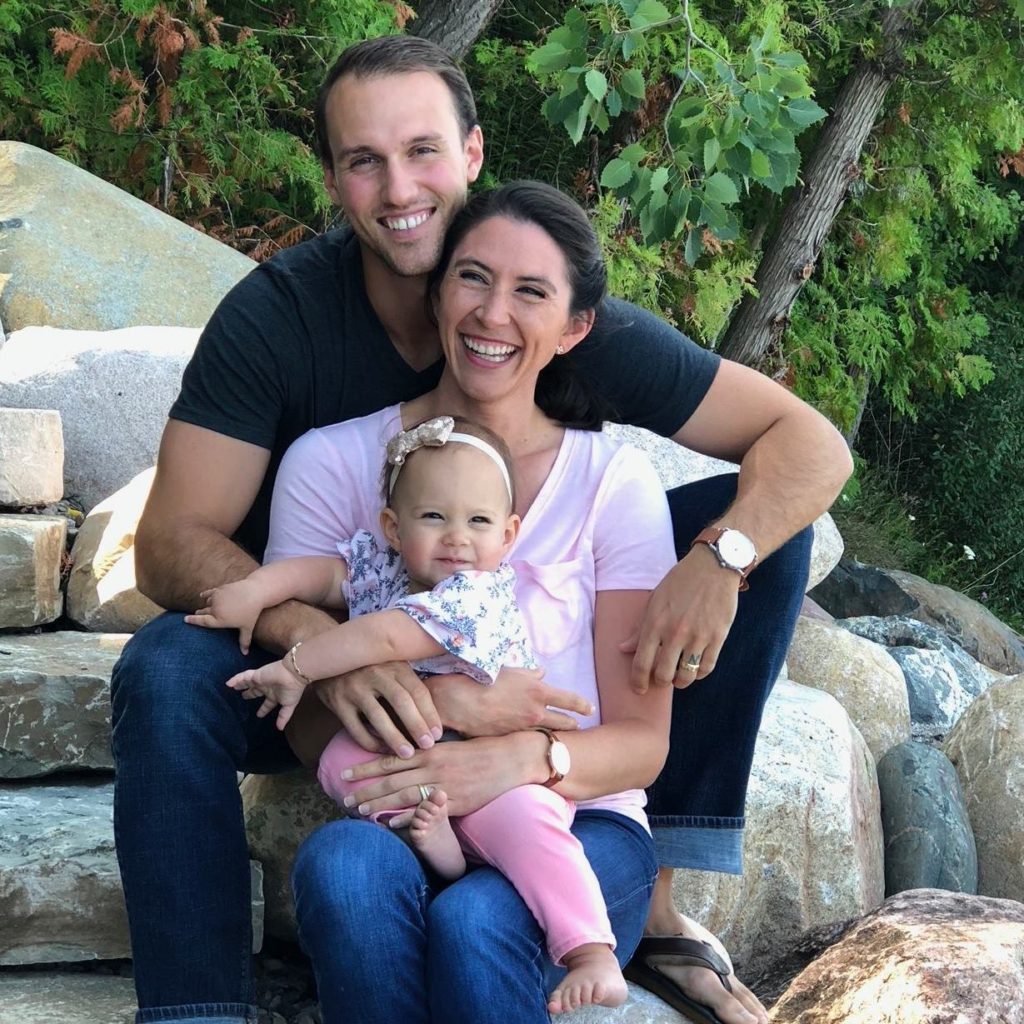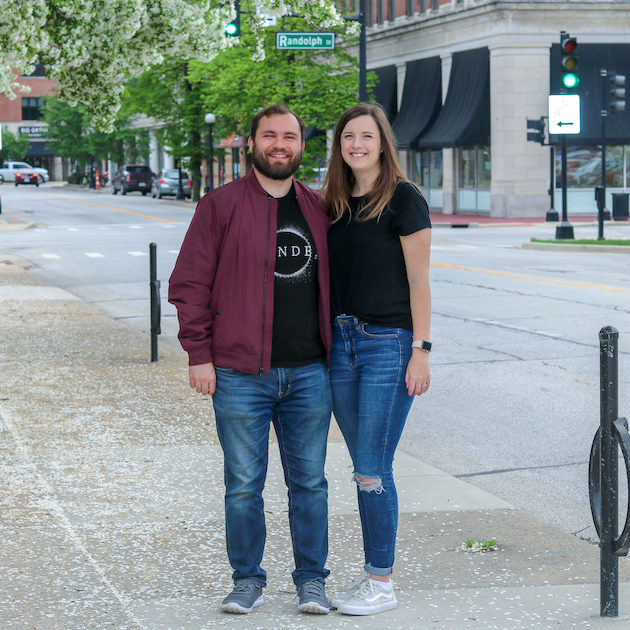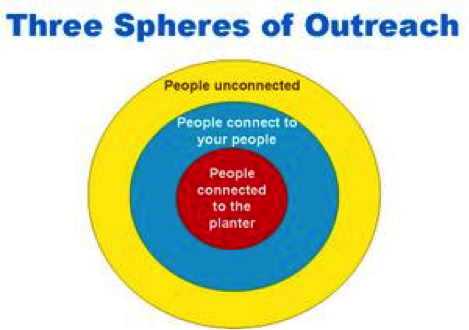Every church this fall will have an opportunity to relaunch and retool their ministry. We hope this series of articles will inspire and practically assist churches as they look into the relaunch process. We desire that every church will take this God-given opportunity to heart and leverage it for kingdom expansion.
As we read through the book of Acts, we always need to remember it is an inspired book of history. It gives us a glimpse of how God worked through ordinary men and women to fulfill His purposes and carry out His ongoing mission of redemption. We should look at the book of Acts as a place to glean principles and insights for church planting and church life. It is not a book to look for blueprints or models but rather a book to discover transferable principles that will be shaped by your cultural context.
Here are a few transferable principles that we can glean from the launching of the church in Acts 1-2:
1. Our motives must be great commission driven. Acts 1:4-8
If our only motivation is to get butts in the seats at whatever cost, we are heading for a world of hurt and disappointment. If all we are doing is to try to increase our revenue stream and meet our church’s financial needs, we are just going to be frustrated. If all our efforts are trying to get the “already convinced” into our church, the wheels will fall off very quickly. We must be great commission focused. Our hearts must be broken and burdened for those who are far from God. The only way some churches are going to grow in the consumeristic Christian culture will be through effective evangelism. My experience is that unchurched people don’t need all the bells and whistles of the mega-church – Christians do! Those far from God want relationships, meaningful connections, and hope for the future.
2. Spiritual dependence is vital. Acts 1:12-14
The disciples continuously gathered for prayer. They reflected on their deep reliance on God, clinging to God, not knowing what was next, merely waiting in humble dependence was the posture of Jesus’ disciples. How will your congregation reflect their prayerful dependence on God? I remember hand labeling 12,000 mailers with our team and praying for each person that God would open their hearts and touch them. Prayer walking our community before and during our launch and relaunches had a powerful effect. Having our people generate a list of people they would like to see come to Christ during this outreach, and then having a special prayer meeting where each name is lifted before the throne of God has proved very effective. Every fall and start of the new year, we had a focused prayer campaign to get our hearts right with God and to intercede for our loved ones, friends, and community.
3. Select and build into leaders in preparation for outreach. Acts 1:15-26
Preparing for a launch or relaunch is a great way to expand and develop your leadership team and volunteer-based. Giving people short term specific assignments is a great way to training and identify leaders. In some cases, you can double your leadership team and volunteer base with inviting people to fill needs for the short-term commitment. The critical aspect is that the more people you have involved in the planning and preparation, the more committed they will be in inviting and reaching out to their friends and family. We need to see these times of focused outreach as leadership development opportunities.
Pastors, how much time of the week are you giving to leadership development? Who are you as a leader personally investing time and energy? Remember, multiplication starts with you and the faithful leaders you pour your life into (2 Timothy 2:2).
4. Pick a good day and time of year for launching or relaunching your church. Acts 2:1
In Acts 2, we see that God launched the church on the day of Pentecost. This was no accident! There are theological, historical, and sociological implications to this date. Pentecost, which means “50” was the final celebration of the Feast of First Fruits which happened 50 days earlier. At this Feast, God’s people were to give a free-will offering (Deuteronomy 16:9-10) celebrating God’s provision. The theological and historical significance was that the Feast of First Fruits started on the Resurrection Sunday and ended on the Day of Pentecost. So, we see that the church was born out of the first fruits of Christ’s sacrifice. The sociological significance was that Pentecost or the Feast of Weeks was one of three annual pilgrim feasts (Deuteronomy 16:16), where God’s people from all over the world came to celebrate. We see such an array of people and languages in Acts 2:5-11. Pentecost was no accident. It was strategic, and this is one of the reasons why three thousand were added to the church that day. So, when is the best time to do a launch or relaunch? Our experience has been:
- Fall: Late September-early October
- Lenten Season: February-March
- Easter: Late March-early April
The best time for launching or relaunching is the fall because you have nine months before you face the summer slump. The second-best time for launching a church is in February; this is a season when unchurched people come back to church. The third is right before Easter.
5. Launch out in the Spirit’s power. Acts 2:1-4
Remember, only God can draw people into a relationship with him. It can be tempting to trust your planning, but you must teach your people to act in faith and depend entirely on the Holy Spirit. The Spirit is the life-giving power. Prayer and fasting will be critical for you and your church to express its dependence on God. “Some trust in chariots and some in horses, but we trust in the name of the LORD our God.” Psalm 20:7
I hope that every church would experience a season of dramatic growth like the church in Acts 2 did, but the reality is that most are unwilling to pay the price for that type of growth and impact. A significant growth campaign in your church will cost you something. It will cost you your comfort, it will cost you time, it will cost you money, it will cost you your sleep, and it will even cost you some relationships because everyone is not going to embrace this journey with you.
6. Create interest throughout your webs of relationships and throughout the community. Acts 2:5-13
Three thousand people were added to the church in a single day. Still, the big question is, how many people were impacted by the miracle of the disciples speaking in different languages? God, in a miraculous way, created a buzz throughout the community through this miracle, both relationally and attractionally. There was so much buzz that it caused a reaction in people. The crowd asked three questions and made one accusation:
- “Are not all these men who are speaking Galileans?”
- “Then how is it that each of us hears them in his own native language?”
- “What does this mean?”
- “Some, however, made fun of them and said, ‘They have had too much wine.’”
Here is an essential principle that most churches don’t understand. If you are going to have a major growth thrust, you must, in a big way, gain the attention of your community in such a way that it causes people to react. They will respond out of curiousness, out of sincerity, or even out of anger or jest.
When was the last time your church caused a community reaction that led to redemptive activity? Many churches are great at creating buzz in the Christian community but struggle with creating buzz among the unchurched or even de-churched? It’s like the church that only promotes its events through Christian media. Who are they trying to reach? Learning how to grab the attention of your community at large will be central to launching or relaunching your church.
7. Have bold, relevant preaching of God’s word. Acts 2:14-36
I remember a well-known pastor say that 85% of the people stay in a church because they made some type of connection with the person bringing the message that day. We can have all the latest technology, the most inspiring music, the warmest people, the best children’s ministry, but if people don’t connect with the message and the messenger, they will move on. Many a pastor has spent hours preparing the service and outreach strategy but only minutes on developing their message, which is to their detriment and is dishonoring to God.
Two things we learn from Peter’s sermon 1) He responded to the questions and reactions of the crowd. The bulk of the sermons preached in the book of Acts are responses to people’s questions. If we are going to do an adequate job of touching the hearts of people outside the church, we must address the issues they are facing. We must understand their “heart language.” We must understand what moves them. Do you know the primary heart language of your community? 2) He boldly proclaimed the word of God in providing an answer to their questions. Paul writes to Timothy, “Preach the word” (2 Timothy 4:2). The foundation of any church is built on strong biblical preaching, not motivational speaking. Every pastor must be gripped with an undying commitment of bringing the unshakable Word of God to a world that is falling apart.
8. Ask for a commitment to Christ. Acts 2:37-41
The key to getting commitment is clarity! Peter’s conclusion to his message was crystal clear, “Therefore let all Israel be assured of this: God has made this Jesus, whom you crucified, both Lord and Christ” (vs. 36). His call to action was specific and realistic, “Repent and be baptized, every one of you, in the name of Jesus Christ for the forgiveness of your sins. And you will receive the gift of the Holy Spirit” (vs. 38). His appeal was filled with passion and urgency, “With many other words, he warned them; and he pleaded with them, ‘Save yourselves from this corrupt generation'” (vs. 40).
Remember that this launch or relaunch, at its core, is evangelistic in nature. Our preaching must be evangelistically focused. David Murray describes evangelistic preaching as plain, simple, and clear. He writes, “Evangelistic preaching will be plain. If we love sinners and we are anxious for them to be saved, we will be clear and plain in our structure, content, and choice of words. If we can use a smaller word, we use it. If we can shorten our sentences, we do so. If we can find an illustration, we tell it. Everything is aimed at simplicity and clarity, so that, as it was said of Martin Luther, it may be said of us, ‘It’s impossible to misunderstand him.'”
At some point during this relaunch, we must passionately lift the person and work of Jesus Christ. We must challenge our audience with the implications of His claims as Lord and Savior. We must make it clear on how one becomes a true follower of Jesus. How one experiences the merciful forgiveness and the precious gift of the Holy Spirit.
9. Call them into the community of faith. Acts 2:42-47
When Peter called the crowd in the temple area to “Repent and be baptized…” he was not just calling them from something (sin, corrupt generation) but also to something (to Jesus, a new community of faith and a new mission).
Peter’s words give us a beautiful picture of the “church.” The Greek word for church is ekklesia, which in its base form means “to call out.” Isn’t this what Peter was doing? Calling them out to repent, changing their minds on who Jesus was and what He had done for them. He called them out to be baptized, to be dipped underwater before the crowd, as a symbol of personal identification with Jesus and His followers. He called them out to be marked by forgiveness and to receive the promised Holy Spirit. He called them out from a corrupt generation that offered nothing but hopelessness. In response to his calling out, they gathered together in complete devotion, filled with awe and wonder, sold out to the God that saved them and to each other. They had a clear sense of mission, which was seen in their ability to add people to their numbers daily.
As pastors and church planters, we have this same incredible privilege as Peter. As we launch or relaunch our churches into our communities, we have an opportunity to call people out to something greater than themselves. The Church. The Body of Christ. The Bride of Christ. God’s agent of change and hope for our world today.
How do you do that practically? What are the pathways of discipleship and involvement in your church? Would a new Christian know what the next step for them was in the life of the church? Would a returning believer know where to go to re-energize their relationship with Christ? Would a growing believer new in town know how to get connected onto a path of service and multiplication?
Clear pathways of discipleship are critical for having a successful relaunch. George Barna, in his book “Growing True Disciples,” writes, “Offering programs is not the issue. We discovered that surprisingly few churches have a well-conceived model of discipleship that they implement. The result is that churches feel they have fulfilled their obligation if they provide a broad menu of courses, events, and other experiences. Still, such a well-intentioned but disjointed approach leaves people confused and imbalanced.”
Thom Rainer and Eric Geiger, in their book “Simple Church,” articulate that for a church to have functional pathways of discipleship and involvement, there need to be four elements: movement, alignment, focus, and clarity. As you consider what you are calling people to, the following questions will guide you in simplifying the process.
• Movement: How would you describe the “ministry or discipleship flow” that exists in your church right now?
• Alignment: What type of alignment exists between your ministries to achieve your vision?
• Focus: How do these ministry opportunities help achieve our missional outcome?
• Clarity: Do those who attend our public worship service understand our process and the next steps they need to take?
10. Mobilize missionaries to serve the world, not just members to serve in the church. Acts 2:47
The new term for assimilation is mobilization. In the book of Acts, we see that Peter not only called the crowd into the life of the church but also called them to be engaged in the mission of Jesus. This is how “…the Lord added to their number daily those who were being saved.”
Several years ago, I wrote on the differences between church-centric and mission-centric philosophies of ministries. For years the church has practiced a church-centric philosophy of ministry where the goal was to create healthy members for the betterment of the church. But in recent years there has been a paradigm shift where churches are embracing the need to be mission-centric, in that the goal for the church is to create missionaries for the betterment of society and cultural transformation.
Churches are in the sending business. One of the questions we must ask in evaluating a church’s health is, ‘How many people are being mobilized for the Great Commission?'” Reggie McNeal reinforces this paradigm shift in his book, “The Present Future”, when he writes, “The first Reformation was about freeing the church. The new Reformation is about freeing God’s people from the church (the institution). The original Reformation decentralized the church. The new Reformation decentralizes ministry.” The only way we can decentralize ministry is by seeing each member as a missionary to be sent by the church into their personal mission field.
The critical principle I take away from Acts 1-2 is this: “Missionally focused leadership will lead a church towards missional evangelism by engaging them in missional edification. Both are key to seeing the church fulfill God’s redemptive purposes in their communities.”
Conclusion
Fellow pastors and church leaders, the opportunity is ripe for you to relaunch your church this fall. Don’t miss this opportunity to envision your people, equip your leaders, and expand your reach deeper into your community for the glory of God and the good of all people.




































 The church is already using the new location to help people meet, know and follow Jesus. On December 15, the church saw 20 people take the next step in their faith journey by being baptized. And 465 people attended the church’s three Christmas Eve services.
The church is already using the new location to help people meet, know and follow Jesus. On December 15, the church saw 20 people take the next step in their faith journey by being baptized. And 465 people attended the church’s three Christmas Eve services. 

 Hello! We are Philip & Betsy Barr, Converge entrepreneurial church planters in Knoxville, TN. We were inspired by The Parable of the Talents in Matthew 25 and founded Barr 3M Solutions as a way to support our efforts at
Hello! We are Philip & Betsy Barr, Converge entrepreneurial church planters in Knoxville, TN. We were inspired by The Parable of the Talents in Matthew 25 and founded Barr 3M Solutions as a way to support our efforts at 
















































